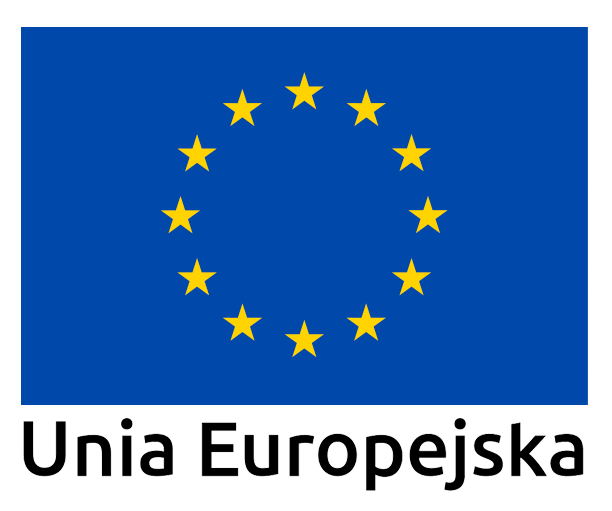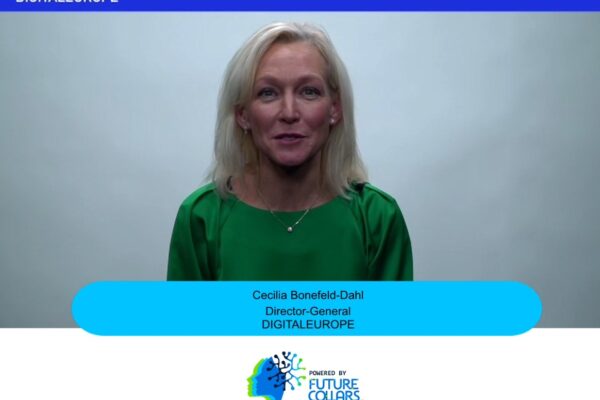WATCH: Women in tech earn 13% less than men - Cecilia Bonefeld-Dahl, DIGITALEUROPE
There is an urgent need to strengthen the presence of women in the ICT sector, where currently only one in five specialists is a woman. In fields such as advanced AI technologies, their participation drops to a mere 5%, highlighting a significant difference, especially in more specialized roles.
We face the challenge of increasing the number of women in rapidly developing sectors like data analysis, artificial intelligence, and cybersecurity. These areas offer not only intellectual challenges but also the opportunity to work on groundbreaking solutions with potential significant impact on improving public health, environmental protection, and efficient energy use.
To encourage more women to pursue careers in technology from early stages of education, it is necessary to remodel the approach to teaching. Introducing practical applications of technology can make these fields more accessible and understandable. Innovative teaching methods and increased representation of women can be the key to change. It is estimated that by 2030, 20 million ICT specialists will be needed to meet innovations in Europe, with a current shortage of 300,000 cybersecurity specialists. Work in this area, comparable to the role of a technical detective, is essential for protecting our democracies.
Despite inspiring examples of women in leadership positions in technology, the overall participation of women in the industry remains at a mere 8%, which is far from expectations. Moreover, women make up only 13% of the management staff, earning on average 13% less than their male colleagues. Differences in risk-taking between genders may be one explanation for this situation. To reverse this dynamic, it is crucial not only to promote a greater number of women in technology but also to create an environment that supports their professional development. Such an environment should actively support women, enabling them to develop skills necessary to work in this rapidly developing industry.
Our perfectionism and fear of risk often pose a barrier. It is important to adopt an attitude of openness to change and readiness to try, treating mistakes as part of the learning process. Educating children to be courageous in making mistakes and seeing constructive criticism as an opportunity to learn is equally important. Life challenges require resilience and determination for women to take the place they deserve, using their qualifications, innovation, and creativity in creating solutions based on data and artificial intelligence - emphasized Cecilia Bonefeld-Dahl.
Combating Biases
Promoting equality is crucial in our society, not only in terms of gender equality but also regarding sexual, age, and other forms of diversity. Unfortunately, there are still regions of the world where women's rights are significantly restricted, which obliges us to actively engage and act for change.
Combating biases requires empathy and a deep understanding that unconscious biases are part of each of us, including me. It is natural to have our own beliefs and stereotypes. However, it is important to be aware of these biases and actively strive to eliminate them. This process should be approached with detachment, maintaining resilience and continually pursuing our own goals. The belief in our competencies enables us to achieve set goals and long-term career success, rather than allowing minor adversities or misunderstandings to have too much impact.
Gender Equality in Technology: Why is it Important?
During Women in IT Day, Cecilia highlighted the significant gender pay gap, noting that women earn on average 13% less than their male colleagues. "These data are not just numbers; they illustrate a deep need to work towards achieving equality," she remarked, emphasizing the importance of building awareness and engaging in actions aimed at change. Cecilia recounted the story of Ada Lovelace, who became an icon for women's possibilities in technology, despite obstacles and stereotypes that have persisted for centuries, pointing to "the historical and invaluable contribution of women to technological development, which was often overlooked". Despite progress towards gender equality, there is still a long way to go.
Inspiring Women at the Forefront of Technology
Cecilia cited numerous examples of women who have broken barriers and achieved success in technology. She mentioned Mira Murati from OpenAI, Whitney Wolfe Herd from Bumble, Elizabeth Theophille from Novartis, Christel Heydemann from Orange, and Meg Whitman, former CEO of eBay and HP, as examples of women who not only achieved significant success but also shape the world through technology.
She emphasized the importance of visibility of women in high positions to motivate future generations towards equality and realizing their aspirations. She also mentioned influential women in digital policy, such as Margrethe Vestager and Lisa Foer, who have a significant impact on shaping the digital future.
The future of technology depends on the engagement, talents, and perspectives of women at all levels – from management and innovation to political issues. Stories like Ada Lovelace or Mira Murati show that with the right support and equal opportunities, women can significantly contribute to technological and social development, shaping a new era of innovation and equality.
Cecilia, sharing her extensive professional experience, offers a set of tips that she has successfully implemented in her career. These tips are the result of her personal reflections and successes. Cecilia encourages every woman to take control of their professional life, emphasizing that actively shaping one's career path is the key to success. Here are her recommendations:
- Choose a sector with a future – Working in such a sector is not only more exciting but also offers the chance to make a real impact on the world. When I started my journey in technology, there was a debate between choosing mainframe or PC. Today, thanks to technology, we have the opportunity for innovations aimed at protecting our planet, for example, by reducing CO2 emissions by 20% using AI in construction or agriculture. Technology is a catalyst for change.
- Don't take criticism personally – In your career, you will encounter biases and skepticism that you will not be able to change. Remember, the limitations of others do not define your possibilities. Treat this as motivation to go further and strive to achieve your own goals.
- Be prepared for sacrifices – To achieve outstanding success, such as a CEO or CTO position, be prepared for long working hours and the possibility of missing some family moments. It is important to maintain balance and remember that these sacrifices are part of the path to success.
- Maintain resilience – Treat your career like a game in which you can actively influence the change of rules. At Digital Europe, I managed to create a balanced team, showing that diversity and inclusion are key to success.
- Build a support network – Surround yourself with people who will be your support, from whom you can learn and to whom you can pass on your knowledge. Do not forget to keep in touch with them, even during career breaks.
- Develop specialized skills – Solid foundations in fields such as mathematics or programming are the foundation that will enable you to develop both hard and soft skills. You don't have to be an expert, but knowledge in these areas opens up new possibilities.
Technology offers countless opportunities to contribute to better solutions in medicine, fighting global challenges, and creating innovations. It is a fascinating career path that offers a chance for real change. I encourage you to explore technology as an area where you can develop your passions and skills.
Obstacles and Challenges: Personal Experiences
Cecilia Bohnefeld Dahl shares her personal experiences with discrimination and stereotypes she encountered on her career path, emphasizing the importance of confronting injustice and striving for equality. Her career, starting from studies in international business administration, quickly gained momentum through work at IBM, moving through Oracle, to CEO of a smaller company, and consulting for NATO and the European Commission. Cecilia did not see herself in a special light due to her gender, despite being raised in a family with strong academic roots.
During her career, Cecilia faced challenges, including pay inequality and lack of recognition for her work, which prompted her to actively demand justice. Her determination and pursuit of equality not only resulted in deserved recognition and a raise but also became an inspiration, showing that it is possible to break professional barriers. Her story is proof that confronting injustice and stereotypes can lead to change, provided one maintains determination and strives for equal treatment. Cecilia showed that flexibility and adaptation in the face of adversity are key to professional development. Her experience with mistaken roles during a business trip, where she was mistakenly recognized as part of the catering staff, instead of VP, highlights how stereotypes can affect the perception of competence. Nonetheless, her ability to handle such situations, with humor and professionalism, contributed to building strong professional relationships. Cecilia Bohnefeld Dahl is an example that crossing boundaries, consistently striving for equality, and the ability to deal with stereotypes and discrimination can not only bring personal success but also inspire other women to action and change in the technology industry and beyond. Her story is a message that despite obstacles, it is possible to achieve equality and justice in the professional environment.
The Role of Education and Mentorship
Cecilia emphasized the importance of education and mentorship for women in technology, highlighting the necessity to increase their presence in STEM fields. Initiatives like "Women for IT" are crucial for retraining women as ICT specialists. As the newly appointed president of the Danish IT Association, she initiated the creation of a women's community, promoting mutual support, knowledge exchange, and IT competence development.
Inspired by her experience as one of the few female CEOs at a conference dominated by men, Cecilia mobilized action, resulting in the establishment of a women's community of technology leaders. Her work as president led to the introduction of diversity guidelines, achieving gender balance in the boardroom. Under the direction of the current COO, the "Women for IT" program enabled the training of 900 women as ICT specialists, of whom 70% found employment or started their own businesses shortly after training.
These actions affirm Cecilia's belief in the importance of striving for equality, which translates into creating innovative and diverse solutions that drive progress.
***
Cecilia Bonefeld-Dahl has over 25 years of experience in the ICT industry, holding international positions in companies such as IBM and Oracle, and creating enterprises worldwide. Her commitment to promoting diversity and equality in technology has been affirmed by her membership in various forums and groups, including the European Industrial Forum and the ENISA Cybersecurity Certification Group. For her services in support of Ukraine during the war, in March 2023, she received the Peace Prize of Ukraine on behalf of DIGITALEUROPE. Her career and actions serve as an example for women around the world striving to achieve equality in the tech industry.
***
"Women in IT Day 2023" is a free online conference dedicated to women who want to consciously shape their career paths in IT. It offers eight hours of an intensive program, including lectures, debates, meetings with potential employers, workshops, speed mentoring sessions, and a rich dose of knowledge and inspiration.
The main goal of the event is to support women in the technology sector through education, building relationships, and mentorship. It features leaders and experts from the Polish and European IT industry, sharing their knowledge and experience.
Future Collars, the main organizer, is an online school for programming and digital competencies, offering unique teaching methods. It is aimed both at individuals wishing to change their career direction and enter the world of IT, and at companies looking for effective developmental programs for their employees.
MORE: www.womeninitday.com
WOMEN IN IT DAY 2023
THANK YOU FOR BEING WITH US:
MAIN PARTNER: PKO Bank Polski, Centralny Ośrodek Informatyki, Accenture, BNP Paribas Bank Polska, Orange, Point72, PwC, Totalizator Sportowy, GPW, SimCorp HONORARY PATRONAGE: Ministry of Family and Social Policy, Ministry of Digitization, KIGEIT National Chamber of Commerce of Electronics and Telecommunications, POLSA Polish Space Agency, SGH Warsaw School of Economics SUBJECT PARTNER: HR Hints, flexi.pl, Jolanta Kwaśniewska's Agreement Without Barriers Foundation, Blockchain Poland Association, IAESTE International Association for the Exchange of Students for Technical Experience, Bring Women Back to Work, Youth Human Impact, Women in Medicine Foundation, CCIFP French-Polish Chamber of Commerce, Challenge Rocket com, Knowledge Society Development Foundation THINK! Lewiatan Confederation, Challenge Rocket, Think, Hack Yeah, MMC Poland, FOB Forum for Responsible Business, She Skillz Global, Polish Chamber of Informatics and Telecommunications PIIT, Business Women Leaders Foundation, Cyber Women Community, Cyber Clue, OPI Information Processing Center, Success Written in Lipstick Foundation, Share the Care Foundation, DATA Economy Congress, SoDA Software Development Association Poland, NESsT, No Stress Institute, Fin Tech, Eklektika - Language Means Business, Talenti, No Fluff Jobs, IT Girls, True ME MEDIA PATRONAGE: BusinessWoman&life, Comparic.pl, Polish Wallet, reach4.biz, TVP Bydgoszcz, Biotechnologia.pl, Mamo Pracuj, Polish Sky, BiznesTuba, Fintek, Entrepreneurs.eu, IT Poland technology cluster, di24.pl, AIoAi 5TH EDITION OF WOMEN IN IT DAY IS PART OF THE ERASMUS+ PROGRAM IN COOPERATION WITH: Future Collars, DIGITALEUROPE, European Women's Association










